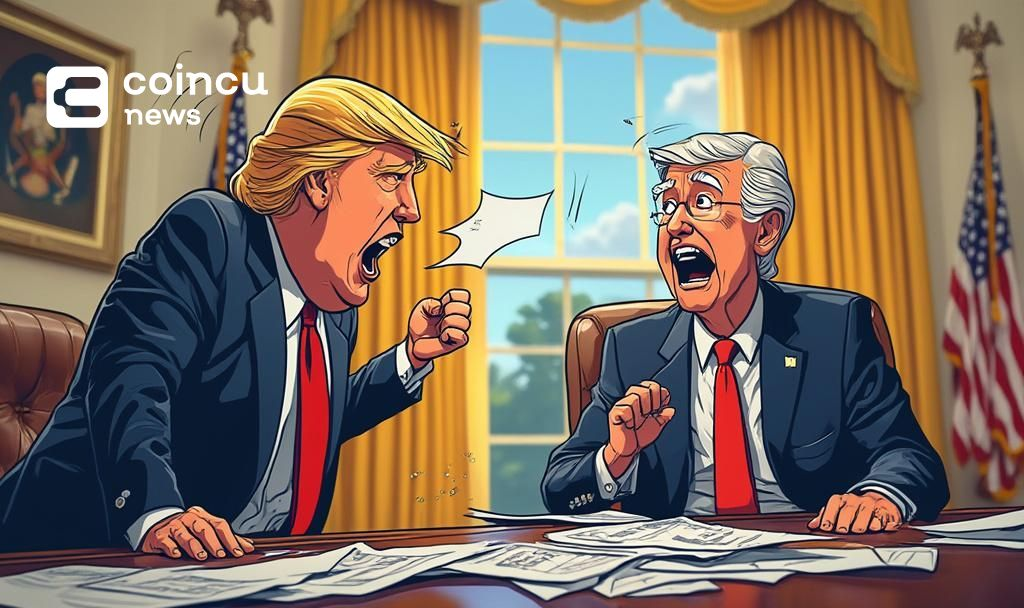$119170.499
At CoinCu News, we give both basic and in-depth articles on the latest news in the cryptocurrency and blockchain sectors.
Author
News
Trump Says He’s Unlikely to Fire Powell Amid Fed Renovation Dispute
Trump eases market fears after signaling possible Fed chair dismissal; Powell's term continues as asset
Jul
Trump Reportedly Considers Firing Federal Reserve Chairman Powell
U.S. President Trump considers removing Fed Chair Jerome Powell, impacting financial markets and cryptocurrency regulations.
Jul
Bank of America Explores Stablecoin Opportunity Amid Regulatory Anticipation
Bank of America prepares for stablecoin entry, awaiting regulatory clarity as Morgan Stanley monitors the
Jul
U.S. House Passes Crypto Bill Procedural Vote Amid GOP Support
U.S. House advances crypto bills with GOP backing, setting stage for future policy debate.
Jul
House Set to Vote on Key Crypto Bills as Support Builds Across GOP Leadership
Key Insights: The U.S. House of Representatives is preparing to vote on three major cryptocurrency
Jul
Monad Layer1 Blockchain Unfollows Key Crypto Figures
Monad unfollows 143 crypto influencers on Twitter, impacting VC and community interactions.
Jul
Trump Challenges Fed Chair Amidst Financial Controversy
Trump's criticism of Fed Chair Powell over renovation costs stirs political debate. No direct crypto
Jul
LiveOne Raises $8.9M for Bitcoin Strategy Launch
LiveOne announces $8.9M raise for Bitcoin yield strategy, marking a venture into digital assets with
Jul
Talos Acquires Coin Metrics for On-Chain Data Integration
Talos buys Coin Metrics for over $100 million to expand on-chain data services and enhance
Jul
[tptn_list how_old="7" limit="5" title_length="0" heading="0" show_date="0" ]
[tptn_list how_old="30" limit="5" title_length="0" heading="0" show_date="0" ]





















